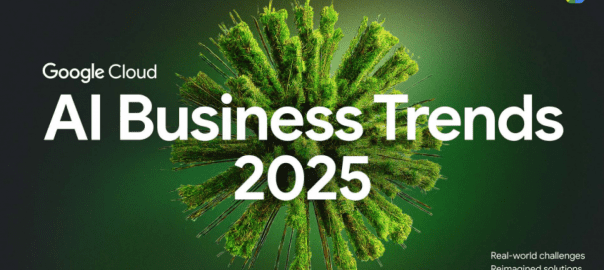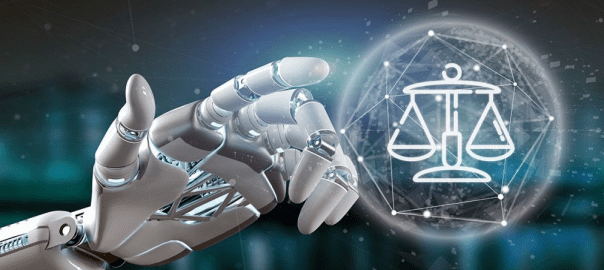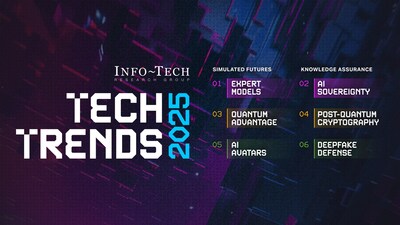Jan. 14, 2025 /Mpelembe Media/ — A SimCorp-commissioned report, based on a survey of 200 global buy-side executives, highlights the need for better AI integration in investment processes. The majority of respondents recognise AI’s potential benefits but lack sufficient information for effective implementation across investment analysis, decision-making, risk management, and client engagement. Continue reading
Tag Archives: Cybernetics
Glimpse the future of business within the AI Business Trends 2025 report
Jan. 6, 2025 /Mpelembe Media/ — This new report explores the five big AI business trends to watch, according to insights from enterprise decision makers, Google search trends, research, and Google’s Cloud AI leaders.
Download report
IRS AI Audit Selection: Innovation and Risk
Jan. 3, 2025 /Mpelembe Media/ — The Internal Revenue Service (IRS) is using artificial intelligence (AI) to improve the efficiency and effectiveness of its audit selection process, particularly within the National Research Program (NRP). The NRP is used to develop estimates of the tax gap, which is the difference between taxes owed and taxes paid. The IRS is implementing AI models to select tax returns for audit in a way that is intended to be more targeted and efficient than traditional methods. Continue reading
IRS Artificial Intelligence Governance and Principles
Jan. 3, 2025 /Mpelembe Media/ — This interim guidance memorandum from the IRS Chief Data and Analytics Officer outlines new Internal Revenue Manual (IRM) 10.24.1, establishing AI governance principles and processes. It details requirements for AI use case inventories, approval procedures, and risk management, particularly for safety-impacting or rights-impacting AI. Continue reading
Rebound in legal tech funding
This Law.com article details significant legal tech investments in 2024, driven by generative AI advancements, alongside several “Who Got the Work” sections reporting on recent legal representation assignments across various cases. The article highlights a rebound in legal tech funding, showcasing substantial investment rounds. Continue reading
World record for ‘Most People Contributing to an AI-generated Image’
Jan. 2, 2025 /Mpelembe Media/ — Media City Qatar, in collaboration with Google Cloud, achieved a new Guinness World Records title for the “Most people contributing to an AI-generated image” through their Qatar ArtBeat initiative. Over 15,000 people contributed to the artwork, which incorporated public sentiment surrounding Qatar National Day 2024. Continue reading
Threats, Incoming AI Regulations, and Exponential AI Adoption Among Top Trends to Prepare For, Says Info-Tech Research Group
As artificial intelligence (AI) continues its exponential expansion across industries, organisations are increasingly challenged to deploy AI responsibly and strategically. Info-Tech Research Group’s newly published AI Trends 2025 report provides critical guidance on Responsible AI, governance, and organisational policies necessary to drive value from AI initiatives. The global research and advisory firm’s report emphasises the importance of managing AI as a core element of organisational strategy and offers actionable steps for effective AI implementation. Continue reading
Experience Beauty with Digital Human Technology: ‘Twinit’ Ventures into Global Beauty Tech Market with AI Makeup Solution
EntreReality, a digital human startup headquartered in South Korea, has launched Twinit AI Makeup to establish its footprint in the global beauty tech market. With cutting-edge technology that combines AI and 3D vision, Twinit aims to redefine the cosmetics experience for users worldwide. Continue reading
Global economic study shows human creators’ future at risk from generative AI
The first ever global study measuring the economic impact of AI in the music and audiovisual sectors calculates that Generative AI will enrich tech companies while substantially jeopardising the income of human creators in the next five years. Continue reading
Buildots launches Dot: First GenAI assistant to answer real construction status queries
AI construction technology leader Buildots today announced the launch of Dot, an interactive AI assistant for construction process management that answers questions with up-to-date information about the status of building activities. The new tool, the first of its kind in the construction sector, leverages Buildots’ comprehensive dataset and cutting-edge GenAI to provide instant, actionable insights in response to direct questions. Dot cross-references multiple data points to provide in-depth analysis, making it easier to measure progress, track implementation, and provide visibility to resolve issues before they escalate. Continue reading









